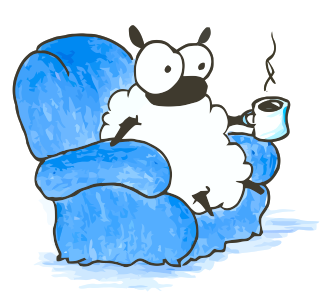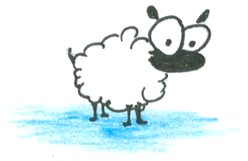Many years ago, I was attending a conference in Southern Ohio. There was a lot of down time with fellow delegates - conversations ranged from political ideology to standards of body image across cultures, to how different languages and dialects developed (until one girl mentioned the Tower of Babel and the rest of us backed away slowly). The accents present at the conference ranged from Southern Belle to Southern Ontarian, but for all the regional dialects to be poked and prodded and looked at with adoring ‘awws,’ the handful of Canadians seemed to be getting an undue amount of attention.
“Say ‘out and about.’”
“Out and about.”
“Hee!! Oot and aboot!”
“But…no…out and about.”
“Hee! Say ‘out and about on a boat.’”
“Out and about on a boat.”
Scores of giggles.
The Americans concluded that Canadians were cute. The Canadians were confused, and concluded the Americans were stupid. Eventually, the conference ended, and the Canadians went home to suppress their newfound angst over how they pronounce ‘about’ and ‘house.’ All was forgotten, until South Park got in on the joke.
Canadians were entirely perplexed: We don’t know what you’re talking aboot.
South Park: Bigger, Better, and Uncut, while hilarious and groundbreaking in its own rights, had Canadians on the defensive. We’re saying ‘about,’ people. About. ‘About’ and ‘a boot’ are pronounced entirely differently, and we’re talking normally, godammit! And it’s ‘house.’ Not ‘hoose.’ Fuck, and our heads don’t flap around in two pieces, either.
I Am Canadian was born, and in the forefront of national, Labatt-induced pride was our inability to understand what the Americans were laughing at: ‘I say ABOUT, not A BOOT, our beer doesn't taste like watered-down piss, I am Canadian.’
Any Americans who were listening to our confused rebuttals giggled: Canadians are cute, and kind of dumb.
But then the world found bigger fish to fry (than those we’d been catching, out and about on our boat): weapons of mass destruction, and the real and present danger of Saddam Hussein, for starters. Americans started talking about a lot of stuff that didn’t make sense to Canadians, or the rest of the thinking world, and a couple hundred thousand brown people died as a result. Plus, I moved to the West Coast, so all of my dialect-based arguments began to centre around the superiority of ‘butt’ over ‘budge’ as the appropriate verb for when someone cuts in line. For the record: they butt. They BUTT in line, I don’t care what you think, lalalalala.
Well…the Democrats are back in power now, and Obama makes my little black heart sing. I think it’s time for healing, and reconciliation, and admitting that mistakes were made. So, let me state now, for the record, on behalf of my fellow Canadians: we were wrong.
That’s right, Canada, I know it’s hard to say, but we’re doing the right thing. And, actually, we ARE talking funny. We are saying ‘aboot.’ I know, I know, I didn’t get it either, but let me explain…Wikipedia told me so.
You see: the concept is called ‘Canadian Raising,’ and it’s part of what makes Canadians special.
If you’re Canadian, the following words will make Americans giggle:
House (the noun) compared to House (the verb, as in ‘to house’)
Pouter compared to Powder
Lout (or Stout) compared to Loud
Price compared to Prize
Writer compared to Rider
Canadians (and some Americans…and not certain Canadians…accents don’t end abruptly at borders, apparently) pronounce the first words of that list with a raised tone. American’s don’t. In fact, for Americans, that list of words would sound pretty much exactly the same - ‘writer’ and ‘rider’ can’t easily be distinguished, there’s no difference between a price and a prize. (Note: if your Canadian, the difference between those words isn’t in the second syllable, where it by all logical reasoning should be. It’s in the vowel. That’s due to an entirely different North American dialectical concept, called ‘flapping,’ where ‘d’ and ‘t’ and ‘c’ and z’ end up sounding exactly the same.)
The raising of ‘ou’ sounds is less common in the States, and more pronounced in Canadians, so it’s a lot more fun to point out…which brings us around and about the house to our old friend: Aboot.
The American pronunciation of 'about' is kind of harsh, like the ‘bow’ of a boat. The Canadian pronunciation is raised, and so for all ye Americans listening in, it sounds pretty close to ‘a boot.’ In fact, that’s a pretty spot on imitation for people who don’t know how to raise. So…when we made the beer commercial, basking in our defensive national pride, we proudly announced to any Americans who happened to be listening ‘It’s ‘aboot.’ Not ‘a boot.’ …We don’t know what you’re talking aboot. I’m going back oot to my hoose now…shut up, South Park, I‘m saying ‘aboot!”
And that is why national pride, in excess, is a dangerous and humiliating thing. As is Labatt Beer, for that matter. And luckily, no one south of the border really cares about Canadians anyways, so I doubt they took notice. But, for the sake of peace and international unity, we can put this whole humiliating affair, ten years in the making, behind us. There are more important things to talk about.
For example: have you ever heard an Australian say ‘Vanilla Ice’? They say ‘Vanilla Rice.’ Also: 'wallaby.' Highlarious.
Monday, March 2, 2009
Subscribe to:
Post Comments (Atom)





No comments:
Post a Comment